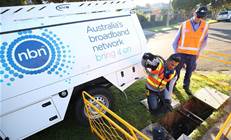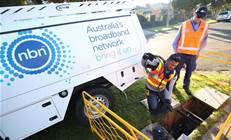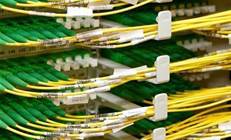Election 2013: Broadband

Of all the election issues watched by the tech sector, the national broadband network has enlivened the most debate.
The Coalition released its broadband policy ahead of many of its other policies, promising to deliver a fibre-to-the-node network for 25 percent less than Labor’s $44.1 billion fibre-to-the-home network.
Here’s how the policies stack up:
Labor
$44.1 billion fibre to the home network (to be delivered by June 2021), with 97 percent fibre coverage and the remainder a mix of satellite and fixed wireless.
Network to deliver download speeds of up to 1 Gbps and upload speeds of 400 Mbps, depending on the plan purchased.
Wholesale pricing structure fixed, with NBN Co remaining the monopoly provider.
Wholesale price capped at $24 per month for 12 Mbps download/1 Mbps upload speed, frozen for five years, and subsequent increases limited to less than the price of inflation.
Coalition
$29.5 billion mostly fibre-to-the-node premises (to be delivered by June 2015), with 71 percent FTTN and 22 percent FTTP on greenfields sites, and the remainder a mix of satellite and fixed wireless.
Network to deliver download speeds of up to 50 Mbps for the FTTN connections and 1 Gbps for FTTP connections. Upload speeds for FTTN connections of up to 10 Mbps and 400 Mbps for FTTP connections.
Wholesale pricing structure capped by the ACCC, with competing broadband access networks allowed.
Wholesale price forecast to be $38 per month in 2021, with a user pays policy for those wishing to connect the ‘last mile’ to their home with fibre.
Greens
Support Labor’s NBN policy.
Amended policy to ensure any future moves to privatise the NBN would be subject to a review to protect the public interest, requiring the approval of Parliament.



















